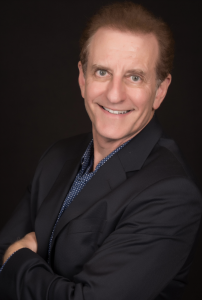
LOS ANGELES, UNITED STATES, May 9, 2024 /EINPresswire.com/ — Todd Buchholz, best-selling author and top economist, says welcome to the Roaring Twenties. “The last time we saw the Roaring Twenties, F. Scott Fitzgerald’s The Great Gatsby reigned, showing how wealth corrupts good people,” he contends. Buchholz adds that Gatsby got the story wrong and that, of all people, Woody Allen has a better grasp on the true connection among wealth, corruption, and happiness!
Both Gatsby and Woody Allen are in the news, as The Great Gatsby musical opened on Broadway on April 25, while Woody Allen’s new movie Coup de Chance plays in a theater away on the tonier East Side. The contrast could not have come at a better time. Today, the uber-wealthy have stolen the attention of the masses while populists push for the reallocation of their wealth. Gatsby, Fitzgerald’s flawed yet quintessentially American tycoon, with his ill-gotten gains from trading dubious corporate bonds, epitomizes the luxury of the “1 percent” with his lavish parties and champagne flutes on Long Island, observes Buchholz in his essay in RealClear Politics.
Woody Allen’s new movie, Coup de Chance boasts a French title, scenery, and dialog because Mr. Allen, due to his 1992 child abuse allegations, has been mostly canceled in the United States. Buchholz questions if Woody Allen, a former gag writer turned auteur, has a savvier take on wealth and American success than the worshipped Fitzgerald.
“Not long ago, while in Paris, I re-read Gatsby. On my flight back to New York, I watched Woody Allen’s 2011 Midnight in Paris, his Oscar-winning work that portrays F. Scott Fitzgerald on screen. And then I hit the replay button and watched it again. I’ve never done that before, neither for Kurosawa’s Seven Samurai nor for Rocky IV. Both Gatsby and Midnight in Paris offer pointed lessons about today’s socio-economic plight. But I have to confess: Woody Allen’s work has more to teach us than F. Scott Fitzgerald’s. Between these two, who is the cynic and the realist? Who sees demons where they don’t belong, and who holds out hope? I was surprised to find that Woody Allen – who’s been cracking mother-in-law jokes since the 1950s – does not take the easy way out. Fitzgerald does,” explains Buchholz.
Jay Gatsby tops Book magazine’s poll of literary experts as the most significant character in twentieth-century American literature. Buchholz understands the iconic writer’s influence over literature. He says, “No kid can squeeze past school without at least buying Fitzgerald Sparknotes or Shmoop… Heck, Harold Bloom, America’s most heralded Shakespeare scholar, published his notes on Gatsby.” Meanwhile, Woody Allen, an NYU dropout, initially wrote jokes for Sid Caesar’s TV show and later starred in Sleeper, a film where he kidnaps a nose. However, Gatsby and Midnight in Paris reflect quintessential American themes, as their protagonists strive to redefine themselves while rejecting societal expectations.
Fitzgerald was the undisputed literary star of the Roaring Twenties, a decade that didn’t turn out so well. Despite his renowned fame, Fitzgerald “was an insecure writer, worried about his paycheck and his penis size,” Buchholz says. Fitzgerald and Gil Pender, portrayed by Owen Wilson, are compared by Buchholz. While Fitzgerald struggled with insecurity and financial problems, leading him to Hollywood, Pender found success there but yearned for literary recognition. Both characters represent different facets of the American dream.
“But here’s the mistake of Nick and Fitzgerald himself,” Buchholz argues. “They take the easy way out and blame the City and modernity. If only Nick and Gatsby had stayed in the wholesome West; if only Gatsby had stayed in North Dakota, no car would’ve crashed, and no champagne would have corrupted common folk and twisted them into the despicable nouveau riche. Nick states that he’s ‘one of the few honest people I have ever known’ and realizes that ‘this has been a story about the West,’ not the East. It’s a story of innocents perverted by the big City, the jazz music, the highball cocktails, and the cosmopolitan high life. It doesn’t hurt this theme for Fitzgerald to throw in city-slicker, baseball-game-fixer Meyer Wolfsheim, whose cufflinks are made from human molars. He’s Bernie Madoff without the good diction. In Gatsby, everyone would have been better off if they had stayed out west, milking cows or shearing sheep in the barn.”
This critique questions the “noble savage” fantasy seen in literature since Rousseau’s time, contrasting rural purity with urban corruption. For example, while Tarzan represents the noble savage, Dorian Gray epitomizes urban decay. However, crime rates are lower in cities, debunking the rural purity myth. The Great Gatsby falls into this fantasy, depicting rural nostalgia, notes Buchholz.
For Buchholz, Midnight in Paris offers a nuanced perspective. Initially drawn to the Lost Generation’s simplicity, Gil learns nostalgia is futile. Belle Époque artists long for an earlier era, showing that there’s no golden age. Gil realizes that life is imperfect but preferable to the past’s hardships, he adds.
Despite criticisms of neoliberalism and free markets, few reject modern comforts like cell phones and dentistry. In Fitzgerald’s time, people had a lower life expectancy and lived more straightforward yet more deadly lives. Today, despite Fitzgerald’s disillusionment with America, Buchholz concludes that humanity has found a way to avoid a choice between despair and extinction.
Todd G. Buchholz, a former White House director of economic policy and managing director of the Tiger hedge fund, served as a fellow at Cambridge University and is the author of The Price of Prosperity and the novel The Castro Gene. He is co-writer of the new musical Glory Ride, which enjoyed a successful run in London’s West End in 2023. @econTodd
For more information about Todd G. Buchholz and his work, click here: https://www.toddbuchholz.com/
Amanda Kent
Boundless Media USA
+1 313-403-5636
email us here
![]()
Originally published at https://www.einpresswire.com/article/708197680/gatsby-loses-to-woody-allen-says-best-selling-author-and-famed-economist-todd-buchholz



